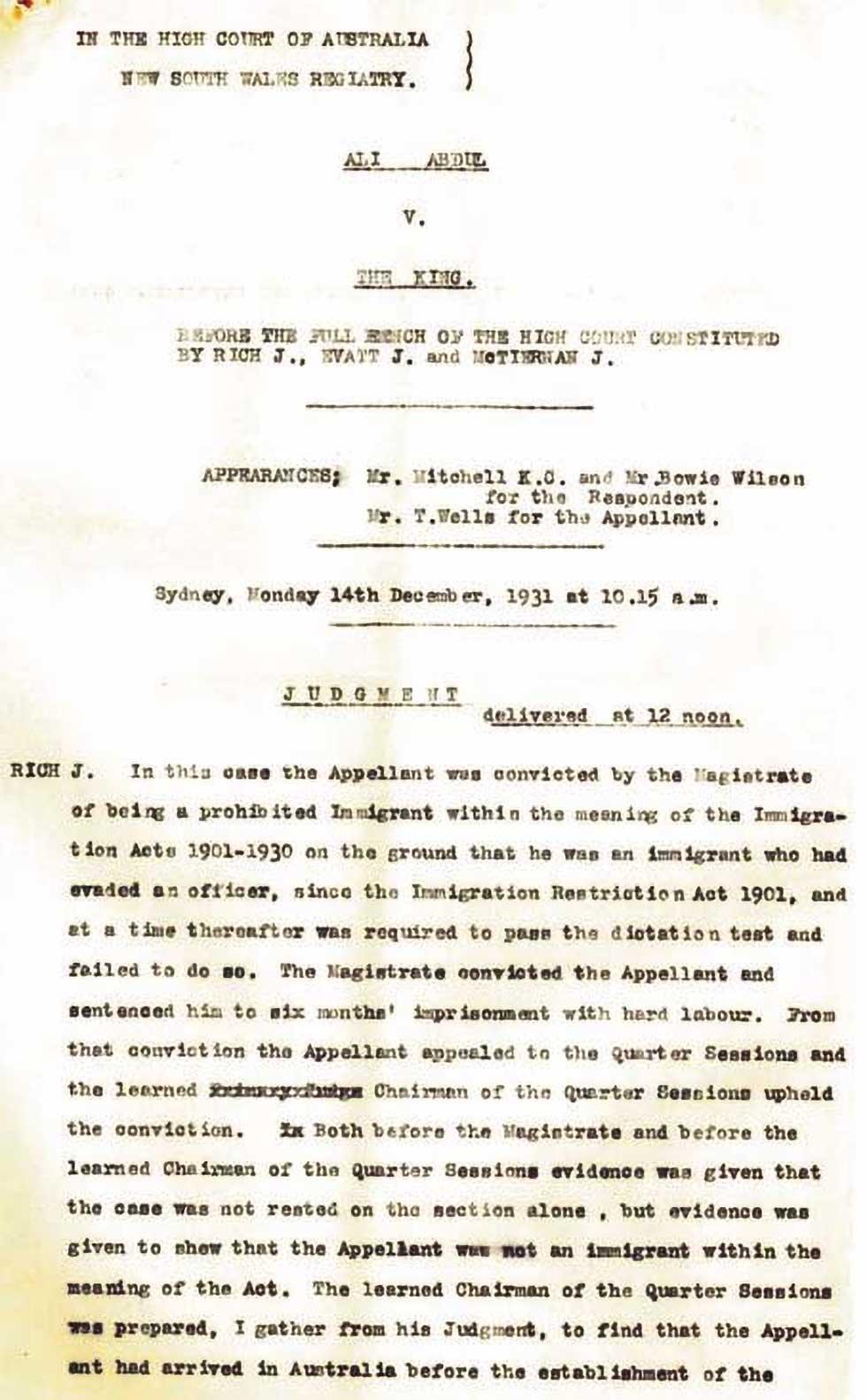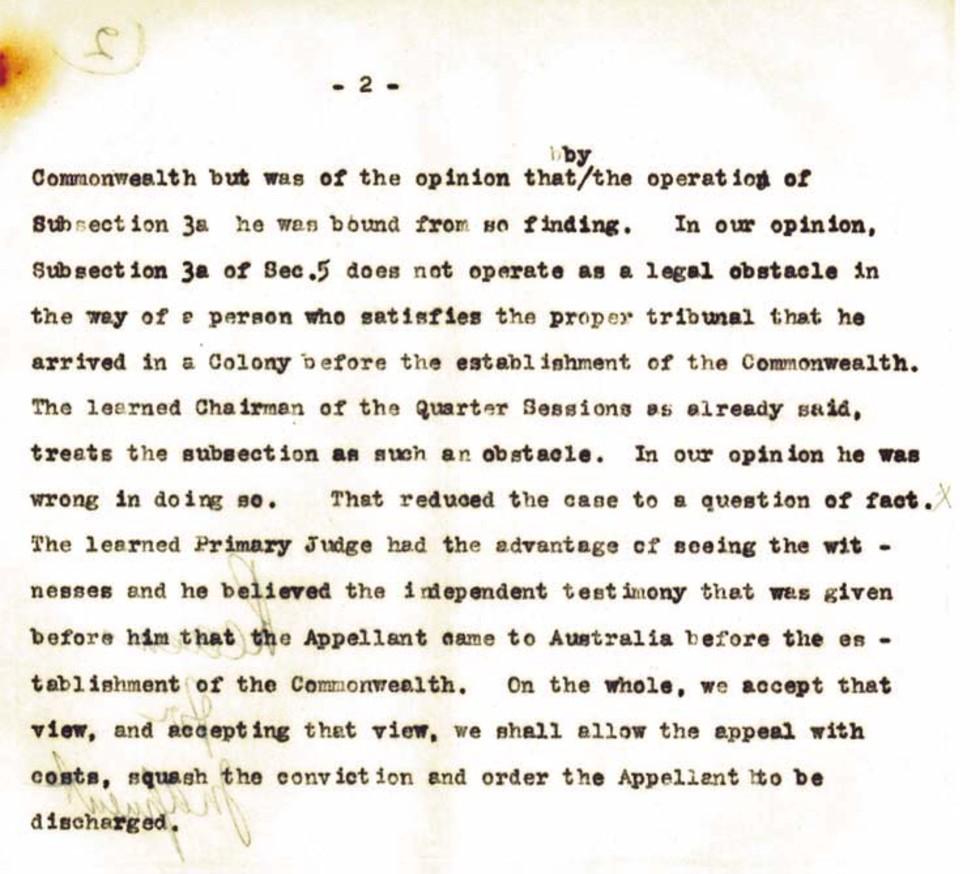

Aboriginal and Torres Strait Islander people should be aware that the National Archives' website and collection contain the names, images and voices of people who have died.
Some records include terms and views that are not appropriate today. They reflect the period in which they were created and are not the views of the National Archives.



[Page 1]
IN THE HIGH COURT OF AUSTRALIA
NEW SOUTH WALES REGISTRY.
ALI ABDUL [underlined]
v. [versus]
THE KING. [underlined]
BEFORE THE FULL BENCH OF THE HIGH COURT CONSTITUTED BY RICH J., EVATT J. AND McTIERNAN J.
[dividing line.]
APPEARANCES: Mr. Mitchell K.C. and Mr. Bowie Wilson for the Respondent.
Mr. T. Wells for the Appellant.
[dividing line.]
Sydney, Monday 14th December, 1931 at 10.15 a.m.
[dividing line.]
[Underlined heading:] JUDGEMENT
[Underlined:] delivered at 12 noon.
[Speaker:] RICH J. In this case the Appellant was convicted by the Magistrate of being a prohibited Immigrant within the meaning of the Immigration Acts 1901-1903 on the ground that he was an immigrant who had evaded an officer, since the Immigration Restriction Act 1901, and at a time thereafter was required to pass the dictation test and failed to do so. The Magistrate convicted the Appellant and sentenced him to six months’ imprisonment with hard labour. From that conviction the Appellant appealed to the Quarter Sessions and the learned [words crossed out: ‘Primary Judge’, replaced with ‘Chairman’] of the Quarter Sessions upheld the conviction. [Word crossed out: ‘In’, replaced with ‘Both’] before the Magistrate and before the learned Chairman of the Quarter Sessions evidence was given that the case was not rested on the section alone, but evidence was given to show the Appellant was not an immigrant within the meaning of the Act. The learned Chairman of the Quarter Sessions was prepared, I gather from his Judgment, to find that the Appellant had arrive in Australia before the establishment of the
[Page] -2-
Commonwealth but was of the opinion that by the operation of Subsection 3a he was bound from so finding. In our opinion, Subsection 3a of Sec.5 does not operate as a legal obstacle in the way of a person who satisfies the proper tribunal that he arrived in a Colony before the establishment of the Commonwealth. The learned Chairman of the Quarter Sessions as already said, treats the subsection as such an obstacle. In our opinion he was wrong in doing so. That reduced the case to a question of fact. The learned Primary Judge had the advantage of seeing the witnesses and he believed the independent testimony that was given before him that the Appellant came to Australia before the establishment of the Commonwealth. On the whole, we accept that view, and accepting that view, we shall allow the appeal with costs, squash the conviction and order the Appellant to be discharged.
Learn how to interpret primary sources, use our collection and more.
